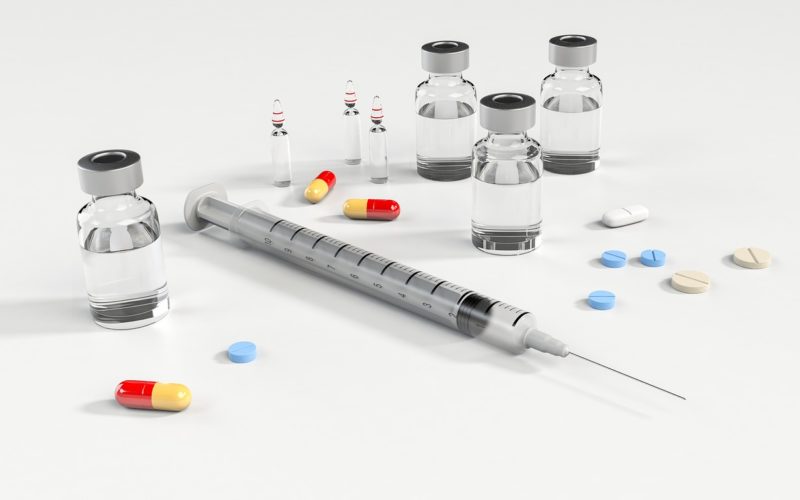Getting a drug test when looking for a new job opportunity is more and more common in today’s world. Many Companies require that their applicants pass a drug test before offering them a position. Some even conduct drug tests on current employees.
But how do drug tests work and how kratom can affect their results? Let’s see how kratom and drug tests work.
Why Do Employers Conduct Drug Tests?
There are various reasons why Companies want to conduct drug tests on their employees or applicants:
- preventing drug or alcohol consumption in the workplace,
- providing a healthy and safe work environment
- complying with Federal Regulations or State Laws.
Employers can conduct tests to look for illegal drug use on their applicants, but they can’t perform tests on legal drugs, such as alcohol.
Drug Testing in The Workplace
Most employers are allowed a lot of leeways when conducting drug tests on their employees. Although there are Companies that are subject to some Federal restrictions, like the policies that apply in safety-sensitive assignments such as transportation.
Usually, the employer will request a urine sample from the employee. The test may be carried out at the job site, a doctor’s office, a clinic or any other place selected by the employer. Then, the employee will need to do the test within a certain period of time (usually one day). This way, the possibility that any substances are eliminated from the body are minimized.
Drug Testing Methods
 75% of times, employers choose to perform urine analysis. The results will show the number of drug metabolites present in the urine. Whilst this method is not very accurate detecting alcohol, it is very effective to detect the presence of illegal drugs in the system.
75% of times, employers choose to perform urine analysis. The results will show the number of drug metabolites present in the urine. Whilst this method is not very accurate detecting alcohol, it is very effective to detect the presence of illegal drugs in the system.
Other methods used to detect drugs are blood, hair, sweat and saliva tests, but these are less frequent.
Then an authorized laboratory will test the urine to look for traces of any substances.
The procedure has 2 phases:
In the preliminary phase, the laboratory will perform an immunoassay test. This will detect the presence of specific molecules to determine whether the individual has used any unauthorized substance. If the results are negative, the process will end here, and no further tests will be necessary.
If the results of the immunoassay come out positive, there will be a confirmatory test. This phase will (or will not) confirm the results of the immunoassay test. To do so, a separate segment of the biological sample will undergo a GC-MS test to find specific drug compounds or metabolites to calculate the amount of drug in the system.
Does Kratom Show Up in the Test?
But how are kratom and drug tests related? The employers usually ask for the 5-panel test of street drugs. This includes:
- cannabis,
- PCP (Phencyclidine)
- opiates
- cocaine
- amphetamines.
Although there are 9 or 10-panel tests that include other types of substances. Nevertheless, the employers don’t usually request them and none of them include kratom.
At the moment, employers are not testing for kratom. Not even when they are looking for opiates.
How Long Does Kratom Stay in The Body?
When kratom enters the system, the liver will metabolize it, like any other drug or medication. There, kratom is transformed  into metabolites, to be then eliminated by the kidneys. Depending on the substance, the body will take more or less time to eliminate it. Also, individual specifics such as age, overall health, height, weight, etc., play an important role.
into metabolites, to be then eliminated by the kidneys. Depending on the substance, the body will take more or less time to eliminate it. Also, individual specifics such as age, overall health, height, weight, etc., play an important role.
Depending on the amount of kratom that you take, the frequency of use as well as the potency of kratom ingested will determine how long it will stay in the system.
The time necessary to lower a substance in the system by one half is called half-life. The shorter the substance’s half-life is, the faster the system eliminates it.
There are two main alkaloids on kratom: Mitragyne and 7-Hydroxymitragyne. According to recent studies, the normal elimination half-life of mitragynine is 3.85 ± ~1 hr, depending on the person’s levels of enzymes along with other factors. 7-Hydroxymitragyne has an average elimination half-life of 2.5 ± 0.7 hours.
Kratom’s terminal half-life is 23.24±16.07 hours, this means that it takes about 1 day for it to be cleared from your body.
Nevertheless, there is almost no chance that your employer will ask you to perform a test for kratom, as it is not included in any of the panel tests for street drugs.
Can Kratom Cause a False Positive for Opiates?
A false positive happens when a drug test result come out positive for a different substance. This happens between 5% and 10% of times when the individual is taking certain prescribed or over the counter medications. Even a teaspoon of poppy-seeds could trigger a false positive for opiates.
Whilst kratom binds mu- and kappa-opioid receptors, it will not trigger a false positive for opiates, as they don’t have the same molecular structure. It would be very unlikely that kratom triggers a false positive for opiates.
The likeliness of getting a false positive depends a lot on the quality of the laboratory that performs the test. Only 100 of the 1,200 laboratories that currently perform drug tests in the U.S. comply with federal guidelines and these are not regulated by the majority of the States.
As aforementioned, if you get a false positive for opiates in the immunoassay (preliminary) test, you have the right to ask for a confirmatory test. Kratom won’t ever result in a false positive in the GC-MS test for opiates.




Thanks for the insights. This article is very helpful.
Such a great read. Thank you for the essential information everyone needs to know.